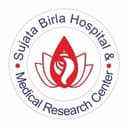Bachelor of Science (BSc) in Radiodiagnosis Technology
OR
Prepared by Docthub Courses Team ∣
Last updated on 02 Aug 2024
Overview
B.Sc radiology and imaging technology course details are as follows:
The B.Sc. in Radiodiagnosis Technology is a three-year undergraduate program that teaches students about the use of medical imaging technologies such as X-rays, MRI, CT scans, and ultrasound.
The course is designed to provide students with the necessary skills and knowledge to work as radiologic technologists.
The course covers various topics related to radiology such as anatomy, physiology, radiation physics, radiographic techniques, and patient care.

Table of Content
Highlights
| Details | Bachelor of Science (B.Sc.) in Radiodiagnosis Technology |
| Level | Bachelor’s degree |
| Duration | 3 Years |
| Exam Type | Semester-wise |
| Course Fees | INR 50,000-2 Lakhs per year |
| Min. Qualification Requirement | 10+2 in the science stream with physics, chemistry, and biology. |
| Average Salary | INR 2 to 4 Lakhs per year |
| Selection Process | Entrance Exam/Merit-based |
| Min. Aggregate Score | 50% or more in 10+2 in science stream |
Full Form:
The full form of a B.Sc. in Radiodiagnosis Technology is a Bachelor of Science in Radiodiagnosis Technology.
Eligibility:
To be eligible for the course, candidates must have completed their 10+2 education from a recognized board with Physics, Chemistry, and Biology as compulsory subjects.
Fees:
The fees for the course vary depending on the college or university offering it. On average, the fees range from INR 50,000 to INR 2,00,000 per year.
Who Should Do This Course?
This course is suitable for those who are interested in the field of medical imaging and wish to pursue a career as a radiologic technologist.
Why Study This Course?
The course provides students with the necessary skills and knowledge to work in the healthcare industry as radiologic technologists. It also offers good job prospects and a decent salary.
Admission Process:
The admission process usually involves filling out an application form, appearing for an entrance exam (if applicable), and attending a counseling session.
Entrance Exam:
Some colleges and universities conduct entrance exams for admission to the B.Sc. in Radiodiagnosis Technology course.
Syllabus:
The syllabus includes topics such as
- Anatomy
- Physiology
- Medical diagnostics
- Radiation physics
- Radiographic techniques
- Patient care
- Medical ethics.
Top Private Colleges
Some of the top private colleges offering the B.Sc. in Radiodiagnosis Technology course include
- Manipal University, Karnataka
- Kasturba Medical College, Karnataka
- Christian Medical College, Vellore
Top Govt Colleges
Some of the top government colleges offering the B.Sc. in Radiodiagnosis Technology course include
- All India Institute of Medical Sciences (AIIMS), New Delhi
- Postgraduate Institute of Medical Education and Research (PGIMER), Chandigarh
- Jawaharlal Institute of Postgraduate Medical Education and Research (JIPMER), Puducherry
Scope:
BSc radiology and imaging technology scope includes finding employment in hospitals, clinics, diagnostic centers, and research laboratories.
Further Study Options:
After completing the course, students can pursue higher education such as a Master of Science (M.Sc.) in Radiology or a Diploma in Medical Radiology.
Career Opportunities After This Course:
Graduates can work as radiologic technologists, CT scan technicians, MRI technicians, X-ray technicians, or ultrasound technicians.
Salary:
The salary for graduates of the B.Sc. in Radiodiagnosis Technology course varies depending on the job profile and organization. On average, the starting BSc radiology and imaging technology salary per month ranges from INR 15,000 to INR 25,000 per annum.
Explore colleges for this course
Quick Go Links

Explore this course by location..
by States
by Cities
Related Job Roles
Related Job Vacancies
View All 191 Jobs

FAQS
What is a Bachelor of Science in Radiodiagnosis Technology (B.Sc. in Radiodiagnosis Technology)?
A Bachelor of Science in Radiodiagnosis Technology (B.Sc. in Radiodiagnosis Technology) is an undergraduate degree program that focuses on the use of imaging technology to diagnose and treat medical conditions.
What subjects are covered in the curriculum of a B.Sc. in Radiodiagnosis Technology program?
The curriculum of a B.Sc. in Radiodiagnosis Technology program typically includes subjects such as radiology physics, radiographic techniques, anatomy, physiology, pathology, radiographic positioning, radiation safety, and image interpretation.
What is the duration of a B.Sc. in Radiodiagnosis Technology program?
The duration of a B.Sc. in Radiodiagnosis Technology program is usually 3 to 4 years, depending on the educational institution and country.
What is the role of a graduate with a B.Sc. in Radiodiagnosis Technology degree in healthcare?
Graduates with a B.Sc in Radiodiagnosis Technology work alongside radiologists and other healthcare professionals to operate imaging equipment, perform diagnostic procedures such as X-rays, CT scans, MRI scans, and ultrasound, and ensure patient safety during imaging procedures.
They also assist in analyzing and interpreting medical images.
Who is eligible for admission into a B.Sc. in Radiodiagnosis Technology program?
Eligibility for admission into a B.Sc. in Radiodiagnosis Technology program includes candidates who have completed their 10+2 education with a science background (Physics, Chemistry, and Biology) are eligible to apply.
Related Course titles

Qualifications
12th Science PCB
Related Specialty
Radiodiagnosis
Radiology Technology
Emergency Radiology




